#Mass Protest in Berlin
Text
This is Berlin tonight, marching in MASSIVE numbers for Gaza 🇵🇸
Wow… Incredible!
#free gaza#gaza genocide#gaza strip#free palestine#palestinians#save gaza#gazaunderattack#gaza#berlin#Mass Protest in Berlin#Massive Protest in Berlin#germany#wake up#support palestine#latinos#puerto rico#puertorriqueños#boricuas#philadelphia#philly#palestine#stop war
4K notes
·
View notes
Text
@political-beauty (insta)
Millions of people went out to the streets this week all over Germany to protest against right wing extremism. The protests were sparked by a media report that emerged in January, reporting on a 'conference' held by rightwing extremists and neo-nazis, which also some members of the far-right party AfD attended, where they discussed a 'masterplan' for mass deportations, mainly of people who are not 'ethnically German'. The AfD is currently polling at around 20% across Germany, which would make it the second strongest party. It is particularly strong in some eastern German states where elections are being held this year and there is a risk that they could become the strongest party there. To prevent this, people are hoping that by then the AfD could be categorised as anti-constitutional and thus be banned. Millions of people have signed petitions to this effect.
The video shows hundreds of thousands of people who gathered in Berlin last night, 21 January. They're chanting an old protest song which (roughly) goes: Resist, resist the fascism in this country, on the barricades, on the barricades, resist!
1K notes
·
View notes
Text
Many on the right have sought to depict the protesters as extremists, but the sheer scale and regularity of the protests and actions are in fact a sign of how mainstream pro-Palestinian feeling is within British society. The question, assuming the movement succeeds in ending the Israeli assault, is where does it go next? What becomes of movements when they stop moving?
Traditionally, social movements went through phases of emergence, coalescence, institutionalisation and decline, followed by dissipation and co-optation by mainstream parties. This usually took decades, the classic case being the US civil rights movement. Yet the era since “Occupy Wall Street” in 2011 has been one of so-called “flash movements”. From Black Lives Matter to the gilets jaunes, movements have coalesced around hashtagged slogans with astonishing celerity, producing deep political crises – and then subsiding.
The Gaza campaign resembles a flash movement. It didn’t come out of nowhere. Palestine has been a cause of the international left since the six-day war in 1967, and the UK has seen repeated protests over Israel’s flattening of the West Bank, invasion of Lebanon and serial bombardments of Gaza. There is a network of organisations doing the groundwork, such as the Palestine Solidarity Campaign and Stop the War. But the turnout for these protests shows the virtues of the flash movement: it can rapidly mobilise masses of people, tolerate a diversity of tactics and keep focus on a simple, morally obvious demand.
In many respects, it is succeeding. In the UK, despite efforts to demonise the protests as “hate marches”, and the then home secretary Suella Braverman’s inept provocation of the far right against the protests, the demonstrations brought up to 800,000 people to the streets on 11 November. This was the largest such demonstration since the invasion of Iraq.
Nor was the UK alone. There have been mass protests everywhere from Tokyo and Kerala to Cairo, Washington DC and Rio de Janeiro. In France and Berlin, protesters have defied official bans. In the US, the Jewish left has led the movement and often engaged in the most militant tactics,including blockading Manhattan Bridge. The embattled Israeli left has also staged protests, despite a climate of police repression and mob violence.
The movement has done what successful movements do: win over public opinion, catalyse cracks in elite consensus and expose divisions in the state. These splits were visible in the form of staffer dissent in the US state department, frontbench resignations in Labour over Keir Starmer’s refusal to support a ceasefire, protests by Dutch civil servants and EU employees, Macron’s ceasefire demand, and recently the call from Canada, Australia and New Zealand, three of the Five Eyes intelligence-sharing coalition countries, for an “immediate humanitarian ceasefire”. Only the US now vetoes UN ceasefire resolutions.
127 notes
·
View notes
Text
October 9, 1989: The day the dictatorial GDR regime broke
Throughout the 1980s, discontent among the population of the GDR about the economical and political situation kept growing. Nonetheless, the ruling party SED (Socialist Union Party of Germany) upheld its role as the only governing part of the state, continuing the process of the "socialist revolution" in the state. People started protesting against oppression of dissidents.
The situation became explosive after the rigged local elections on May 7, 1989. People didn't have the choice between multiple options. Instead, there was only one list of the "National Front", which was automatically counted as "yes" as soon as the ballot was dropped into the urn. The only way to vote "no" was to strike all entries in the list through with a straight line. Although this was a tedious proces that could easily be traced by the Stasi officers in the polling stations, many people made use of this way of voting "no". For the first time, citizens gathered in the polling stations to observe the process of counting. Althouth this was explicitly allowed by law (§ 37 of the voting act), access was denied in almost all cases. Nonetheless, members of the church documented electoral fraud and made it public. This led to the first protests, which the Stasi and regular police forced tried to quench. Around the same time, a mass exodus through neighboring countries to West Germany started.
These protests attracted more and more people. In many cases, the demonstrations started after peace prayers in the protestant churches throughout the country. But still, the oppressive system of the state held the upper hand. On October 7, 1989, the police forces, workers' militia, and Stasi arrested thousands of protesters in Leipzig and arrested them in horse stables on the grounds of the agricultural fair.
This led pastor Christoph Wonneberger to publish a plea for non-violence, which was agreed to by some SED secretaries read out loud over the city's public announcement system (by Leipzig's Gewandhaus Orchestra's conductor Kurt Masur) and during the peace prayers. On October 9, 1989, the situation was tense as approx. 130,000 people took to the streets, marching past the Stasi central. A massive presence of state forces was also present, and people feared a "Chinese solution", referring to the violent Tiananmen Square massacre earlier that year. However, the plea for non-violence by the power of its wording kept both protesters and state forces from violent actions and the protests ended peacefully and without any arrests.
This was the first time the GDR authorities gave in to the masses of protesters. The word spread, and protests sprang up in more and more cities throughout the country, leading to state leader Erich Honecker's demise on October 18 and culminated in the fall of the Berlin Wall on November 9, 1989, which ultimately led to the German reunification.
157 notes
·
View notes
Note
What situation is there in Germany??
In the year 2015, a right wing political party named AfD/Alternative für Deutschland (Alternative for Germany) managed to gain large enough voting numbers to join our government during that years crisis. Over the years, its voting numbers increased by a lot.
Now, with the wars going on, a lot of people flee to Germany, which has helped them gain even more power.
They have always been known a party with neo nazis members, but they always denied it, even though there was always hate for immigrants as well as holocaust denial. Recently, they have been discovered to have met with definitive neo nazis to discuss deporting immigrants as well as any German willing to help immigrants out
Current statistics show they would have around 20% of people voting for them, which would make them the second most voted for party, meaning they would have a very significant amount of power once our government gets reelected
Thousands of people are now mass protesting for their party to get banned
89 notes
·
View notes
Photo

On this day, 27 February 1943, the Rosenstrasse protest, began – the only mass public demonstration by Germans against the deportation of Jews. The protests lasted until March, outside a detention centre on Rosenstrasse. They were organised by non-Jewish wives and relatives of Jewish men who had just been picked up in a brutal wave of arrests across Berlin. The tenacity of the women, who had refused to divorce their husbands, and shown that they were willing to die to protect their Jewish family, may have forced Nazi authorities temporarily to back down. Unlike most European Jews, those who were detained in Rosenstrasse survived the Holocaust. More information, sources and map on our Stories web app: https://stories.workingclasshistory.com/article/9897/Rosenstrasse-protests Pictured: a memorial to the protests https://www.facebook.com/workingclasshistory/photos/a.296224173896073/2219426828242455/?type=3
333 notes
·
View notes
Text
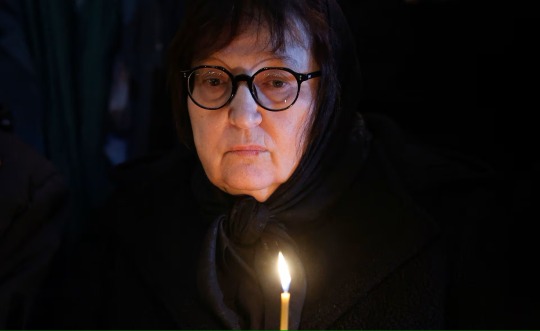
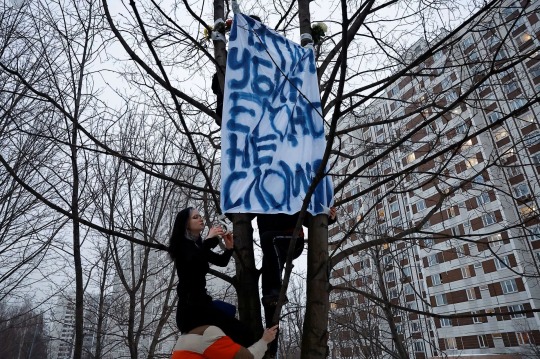
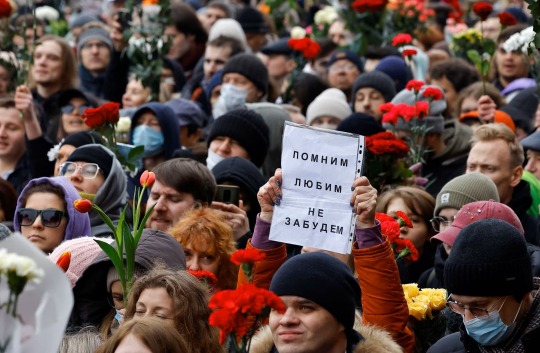
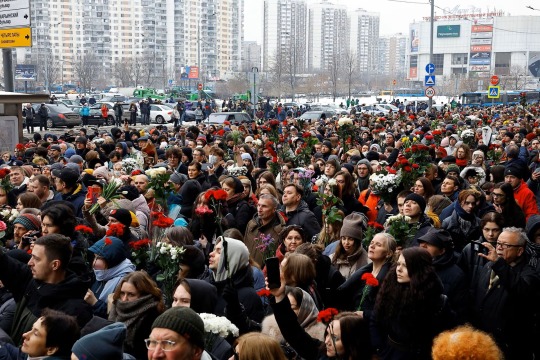
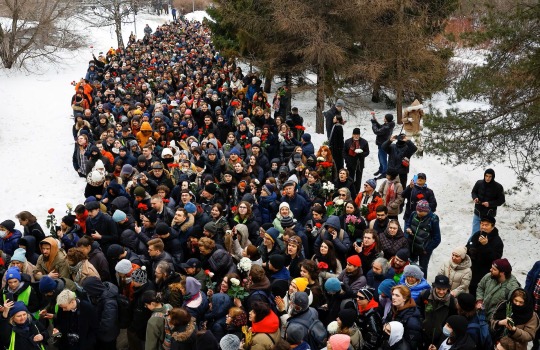
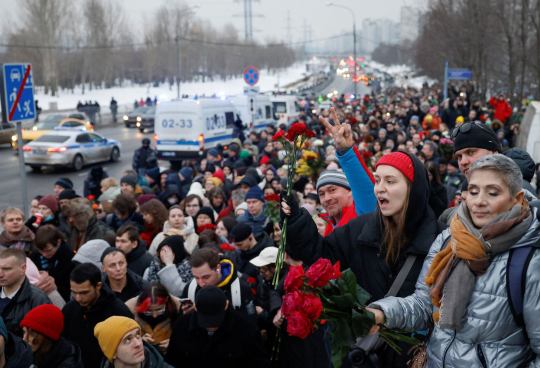
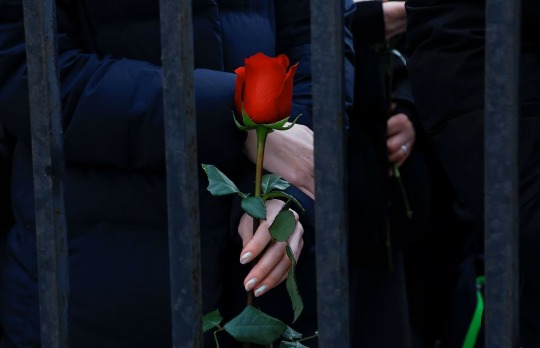
Alexei Anatolyevich Navalny (4 June 1976 – 16 February 2024)
Mr Navalny was a Russian opposition leader, lawyer, anti-corruption activist, and political prisoner.
He organised anti-government demonstrations and ran for office to advocate reforms against corruption in Russia and against Dictator Vladimir Putin and his government.
Mr Navalny was founder of the Anti-Corruption Foundation (FBK). He was recognised by Amnesty International as a prisoner of conscience, and was awarded the Sakharov Prize for his work on human rights.
Through his social media channels, Mr Navalny and his team published material about corruption in Russia, organised political demonstrations and promoted his campaigns. In a 2011 radio interview, he described Russia's ruling party, United Russia, as a "party of crooks and thieves", which became a popular epithet.
Mr Navalny and the FBK have published investigations detailing alleged corruption by high-ranking Russian officials and their associates. He twice received a suspended sentence for embezzlement, in 2013 and 2014. Both criminal cases were widely considered politically motivated and intended to bar him from running in future elections. He ran in the 2013 Moscow mayoral election and came in second with 27% of the vote but was barred from running in the 2018 presidential election.
In August 2020, Mr Navalny was hospitalised in serious condition after being poisoned with a Novichok nerve agent. He was medically evacuated to Berlin and discharged a month later. He accused Putin of being responsible for his poisoning, and an investigation implicated agents from the Federal Security Service.
In January 2021, Mr Navalny returned to Russia and was immediately detained on accusations of violating parole conditions while he was hospitalised in Germany. Following his arrest, mass protests were held across Russia. In February 2021, his suspended sentence was replaced with a prison sentence of over 2+1⁄2 years' detention, and his organisations were later designated as extremist and liquidated.
In March 2022, Mr Navalny was sentenced to an additional nine years in prison after being found guilty of embezzlement and contempt of court in a new trial described as a sham by Amnesty International; his appeal was rejected and in June, he was transferred to a high-security prison.
In August 2023, Mr Navalny was sentenced to an additional 19 years in prison on extremism charges.
In December 2023, Navalny went missing from prison for almost three weeks. He re-emerged in an Arctic Circle corrective colony in the Yamalo-Nenets Autonomous Okrug.
On 16 February 2024, the Russian prison service reported that Mr Navalny had died at the age of 47. His death sparked protests, both in Russia and in various other countries. Accusations against the Russian authorities in connection with his death have been made by many Western governments and international organisations.
Rest in Power !
Lyudmila Navalnaya, the mother of late Russian opposition leader Alexei Navalny, attends a funeral service and a farewell ceremony for her son at the Soothe My Sorrows church in Moscow, Russia, March 1.
People attach a banner to a tree near the Borisovskoye cemetery after the funeral of Russian opposition politician Alexei Navalny, in Moscow, Russia, March 1. A slogan on the banner refers to Russian President Vladimir Putin and reads: "Putin killed him but didn't break (his spirit)"
People walk towards the Borisovskoye cemetery during the funeral of Russian opposition politician Alexei Navalny in Moscow, Russia, March 1, 2024. A placard reads: "We remember, we love, we won't forget".
People walk towards Soothe My Sorrows church in Moscow, Russia and Borisovskoye cemetery during the funeral of Russian opposition politician Alexei Navalny in Moscow, Russia, March 1.
Courtesy: REUTERS/Stringer
#human rights#humanity#art#equal rights#freedom#photography#peace#love#russia#dictatorship#vladimir putin#alexei navalny#murder#moscow#funeral#reuter#rip alexei navalny#political#corruption#activism#stringer#1 March 2024#March 1#2024#march 2024
22 notes
·
View notes
Text
The prospects of a united front preventing Donald Trump returning to power in the US looked a little bleaker this week.
Let’s be frank they weren’t great to begin with. To an outsider Joe Biden just seems to be too old to be a viable candidate. He doesn’t pass the first impressions test. Look at him and you do not see someone capable of serving another four years.
True, he won Michigan's Democratic presidential primary a few days ago– but he was hit by a significant protest vote from left-wing and Arab-American voters angry about his qualified support for Israel's war in Gaza.
And at this point that second cause for worry, and, frankly, panic kicks in.
The left urged registered Democrats to vote for the "none of the above" category to express their opposition to Biden's Israel policy – and about 100,000 did. Their votes represent a wider chunk of the electorate who could well stay at home or vote for minor Green or left-wing candidates and deny the Democrats key states.
In a deeply divided country with a warped electoral system that favours the Republicans, it does not take many voters abandoning the Democrats for Trump to retake power.
I wrote at the weekend about how the Trump example shows how hard it is to unite against a dictatorial threat. People, or to be fair, many people, cannot put aside their commitments and ally with men and women they profoundly disagree with for the greater good of defending democracy.
On the one hand, they cry that Trump is a fascist and white supremacist. On the other hand, they refuse to use all available means to stop him. Mainstream liberals do not moderate their demands to win over wavering conservatives. The far left sees the Biden administration as its true enemy.
The history of the struggles against Nazism are highly relevant to the dilemmas and the dangers we face today.
As Hitler began his rise to power at the end of the 1920s, the European far left was in the same place as a section of the modern US left.
The threat of fascism was as nothing when set against its hatred of moderates.
In 1928 the communist movement adopted one of the cruellest and stupidest policies in its history, which considering the history of Soviet communism was nothing more than a history of cruelty and stupidity was quite an achievement.
Partly because it helped Stalin in his internal power struggles in Russia, Moscow ordered all Europe’s communists to follow an ultra-leftist policy. They were told to denounce moderate leftists as “social fascists”, and fight them to the death.
Communism’s triumph was inevitable, the party line went. No compromise was possible with anyone who stood in history’s path. Reformists were opportunists and traitors. They were social fascists who were as bad as the Nazi gangs which were already gathering on Berlin streets.
Or perhaps they were worse….
For an argument that is still heard today held that, say what you like against them, at least fascists were honest in their way.
By contrast centre-leftists were traitors who had been “bribed by the bourgeoisie” to deceive the masses, as no less an authority than Lenin had said.
They were hypocrites who pretended to want change while watering it down. Nothing could be achieved until they were swept away.
When Stalin’s enemy, Leon Trotsky, who was hardly a moderate, warned that instructing left-wingers to fight other left-wingers was a sure way of allowing fascism to “ride over your skulls and spines like a terrific tank”, Ernst Thälmann, the leader of the German communist party, denounced him for his ‘criminal counter-revolutionary propaganda’.
The result was a disaster. The communists and socialists fought each other instead of the Nazis, making Hitler’s rise easier. Thälmann went along with Stalin’s categorisation of social democrats as “social fascists” until actual fascists came to power in Germany. They taught him the difference by holding him in solitary confinement for 11 years at the Buchenwald concentration camp, and putting him before a firing squad in 1944 and shooting him dead.
Today there are plenty of Thälmanns who believe with absolute certainty that the discredited centrist mainstream is the enemy.
Here is a columnist on the Washington Post greeting the Michigan result

As I emphasised in my previous piece, his stance is absolutely fine in normal circumstances. US leftists are perfectly entitled to refuse to support the Democrats if Biden’s behaviour outrages them.
But surely only enormous levels of delusion prevent them acknowledging that Trump is a threat to democracy. If he wins, the American republic may be so gerrymandered and its civil service so politicised that it will be a Herculean task to remove Trump and his successors. There are plenty on the US far right who cite the rigged democracy of Viktor Orban’s Hungary as their model and dream, after all.
The alternative is to build alliances and once again history is a guide,
Having seen that their previous policy of treating moderate leftists as Nazis had resulted in Hitler coming to power 1933, the geniuses running the Soviet Communist party decided on a U-turn. Henceforth communists were instructed to support “popular front” movements where everyone opposed to the fascist threat would be welcome.
Some of the most interesting US writers have reached back to the 1930s to find ways of dealing with Trump. In How Democracies Die the US academics Steven Levitsky and Daniel Ziblatt found an example in the little-known story of how fascism was stopped in Belgium in the 1930s.
Belgium might have gone the same way as fascist Italy or Nazi Germany. In 1936 far-right outfits —the Rex Party and the Flemish nationalist party, or Vlaams Nationaal Verbond (VNV)—surged in the polls, capturing almost 20 percent of the popular vote.
They challenged the historical dominance of three establishment parties: the centre-right Catholic Party, the Socialists, and the liberals.
The leader of the Rex Party, Léon Degrelle, was a classic far-right figure. A journalist (like Mussolini, and so many other believers in simple solutions) he would go on to become a Nazi collaborator in the Second World War.
Levitsky and Ziblatt wrote that, “the Catholic Party, in particular, faced a difficult dilemma: collaborate with their longtime rivals, the Socialists and Liberals, or forge a right-wing alliance that included the Rexists, a party with whom they shared some ideological affinity.”
Unlike the mainstream conservative politicians of Italy and Germany, who brought Mussolini and Hitler to power, or the mainstream Republican leadership who collaborated with Trump, the Belgian Catholic leadership declared that any deals with the far right could not be contemplated.
"Catholic Party leaders heightened discipline by screening candidates for pro-Rexist sympathies and expelling those who expressed extremist views. In addition, the party leadership took a strong stance against cooperation with the far right. Externally, the Catholic Party fought Rex on its own turf. The Catholic Party adopted new propaganda and campaign tactics that targeted younger Catholics, who had formerly been part of the Rexist base. They created the Catholic Youth Front and began to run former allies against Degrelle."
Right-wing Catholics knew that they must ally with socialists and liberals they normally deplore in a popular front. And it worked. The far right was beaten.
I think popular front politics are essential. But they are not easy or even particularly principled. Go back to the 1940s and you find George Orwell was utterly repelled by communists and conservatives allying to stop Hitler
He looked back with mockery on
“The years 1935-9 were the period of anti-Fascism and the Popular Front, the heyday of the Left Book Club, when red Duchesses and ‘broadminded’ deans toured the battlefields of the Spanish war and Winston Churchill was the blue-eyed boy of the Daily Worker.”
To Orwell, the idea of covering up the crimes of communists for the sake of the greater anti-fascist good was horrific. But that was what the left of the 1930s did. And that was what the British and American governments did during the Second World War. Defeating Hitler came first. They were prepared to forget about the millions Stalin killed until the war was over.
It's a hard choice. But in the circumstances US progressives face, it is an obvious one. There is no argument against making every necessary compromise to prevent a second Trump term. You will have no right to protest, if you do not.
17 notes
·
View notes
Text
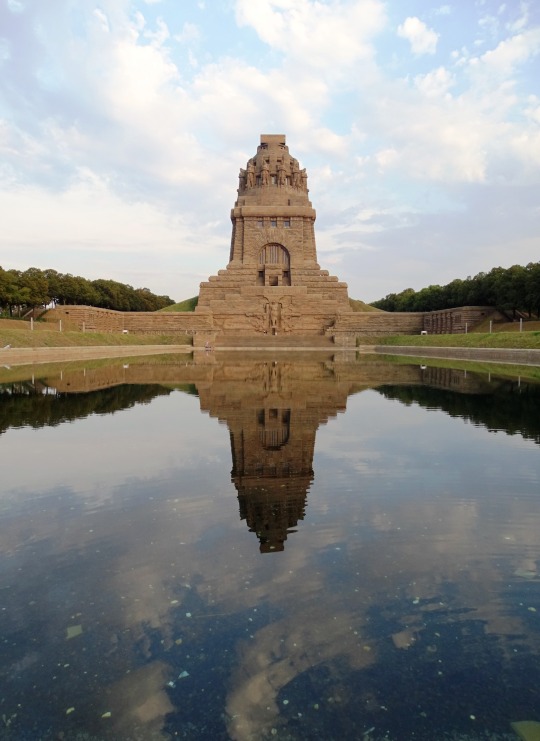
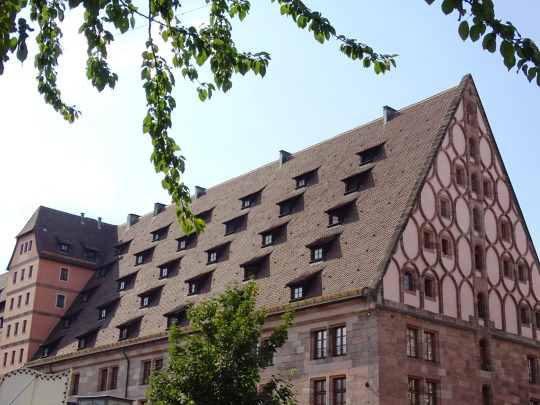
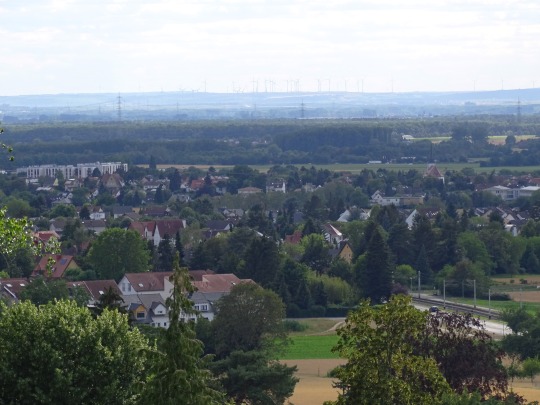
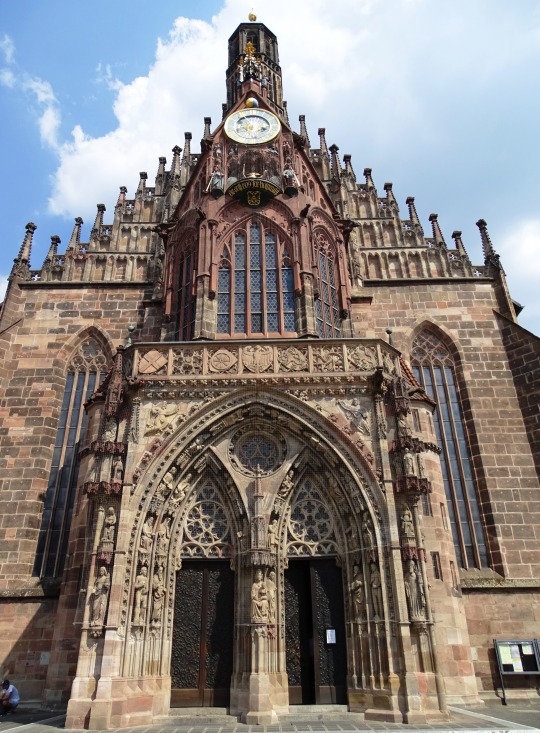
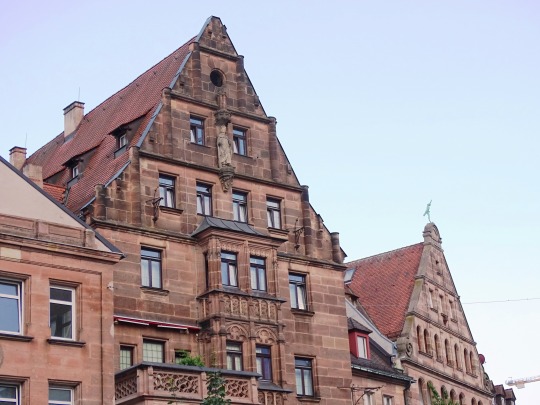
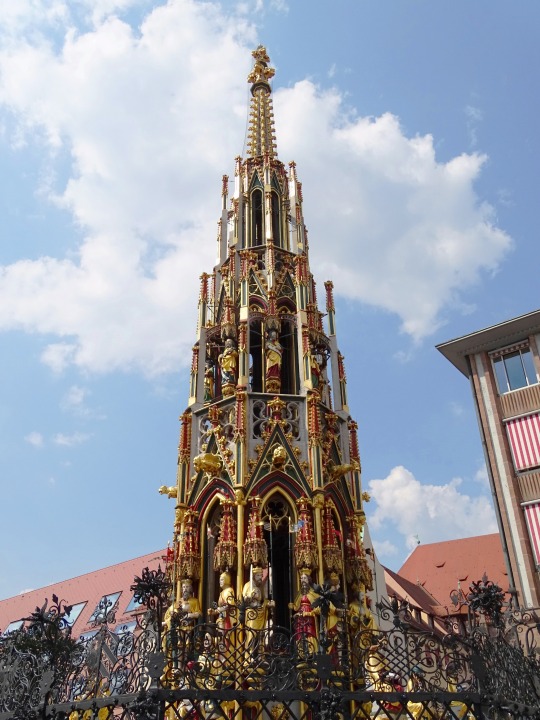
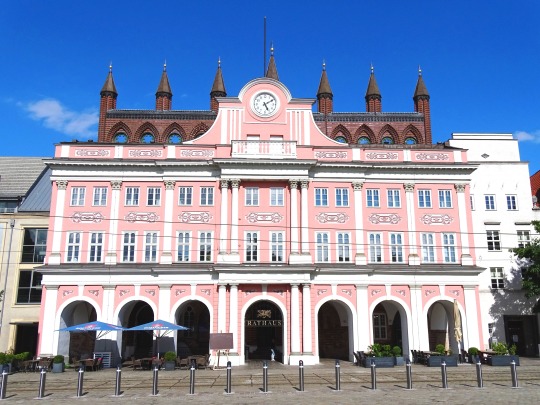
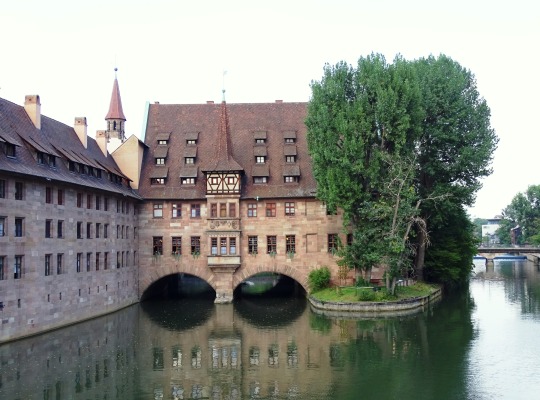
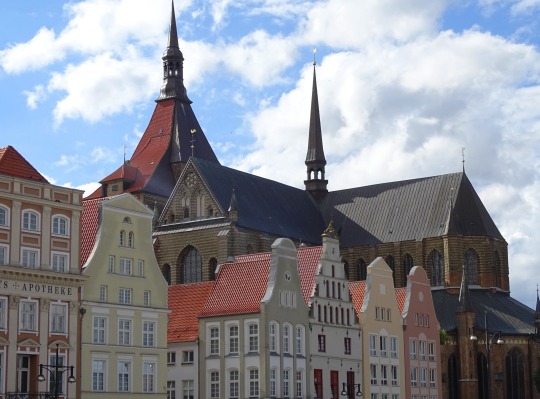
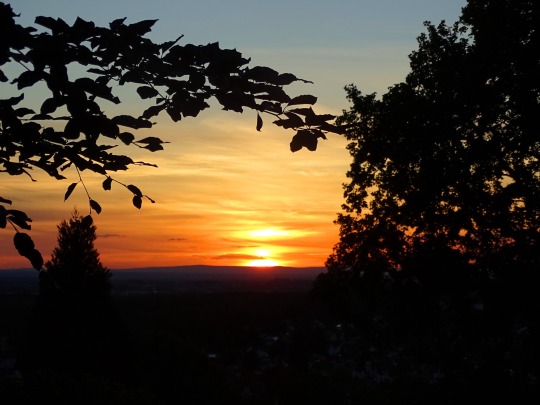
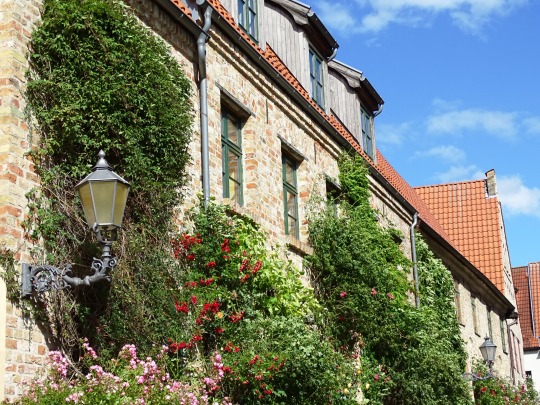
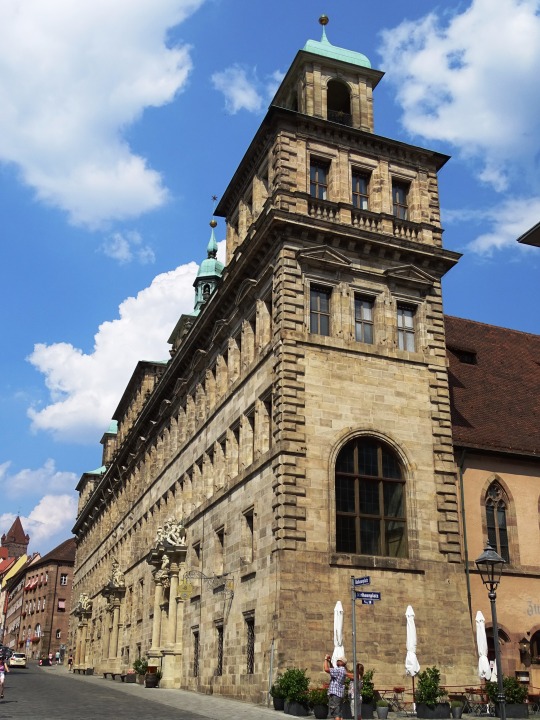


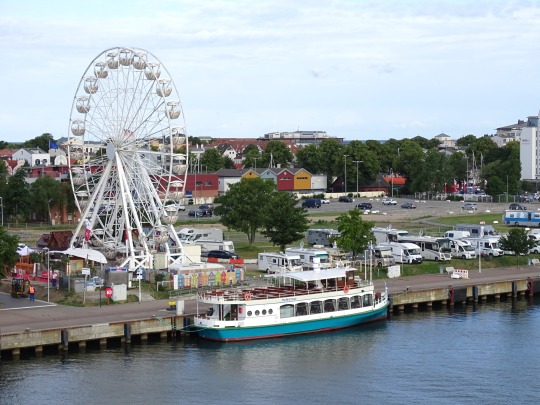
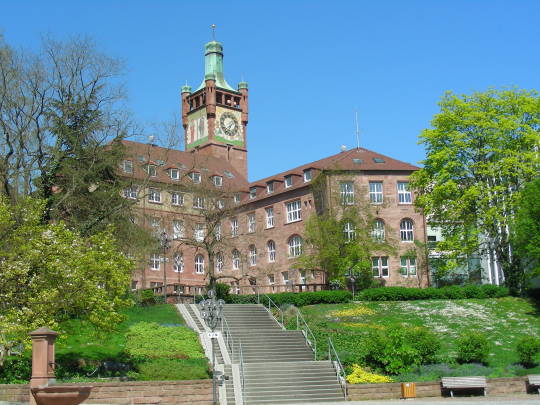
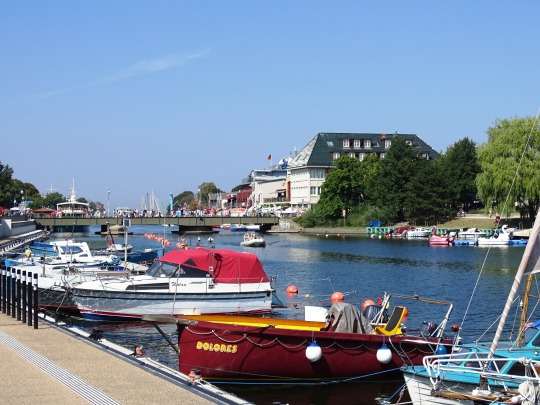
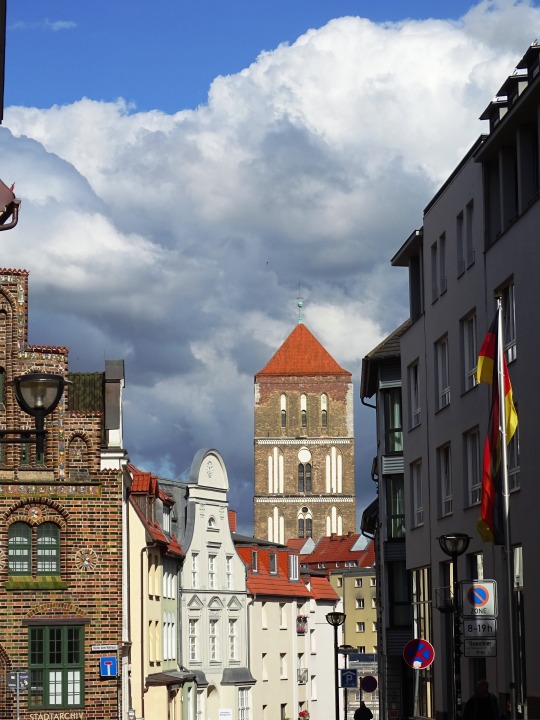

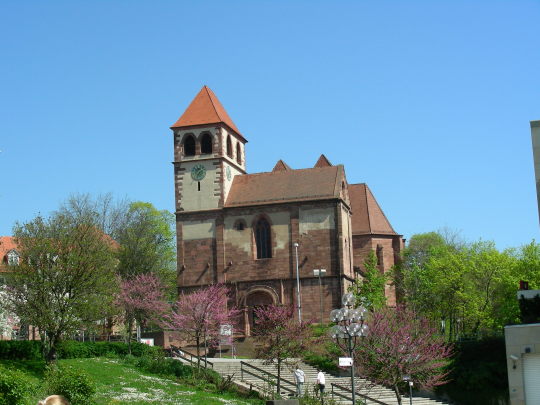
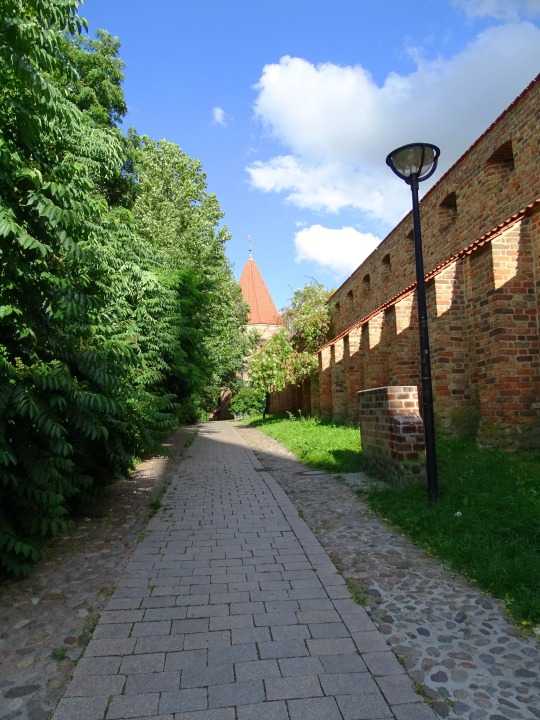
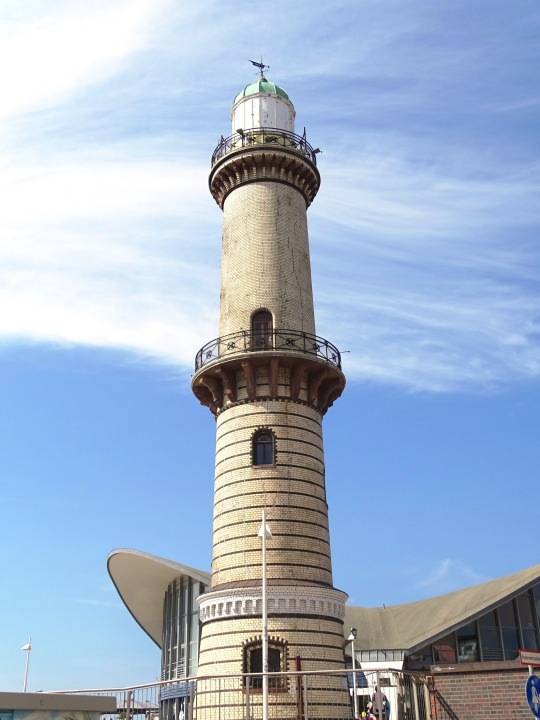
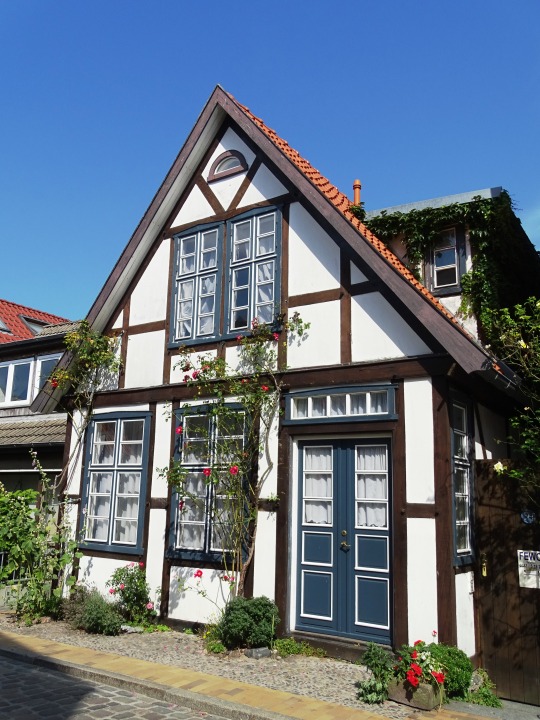
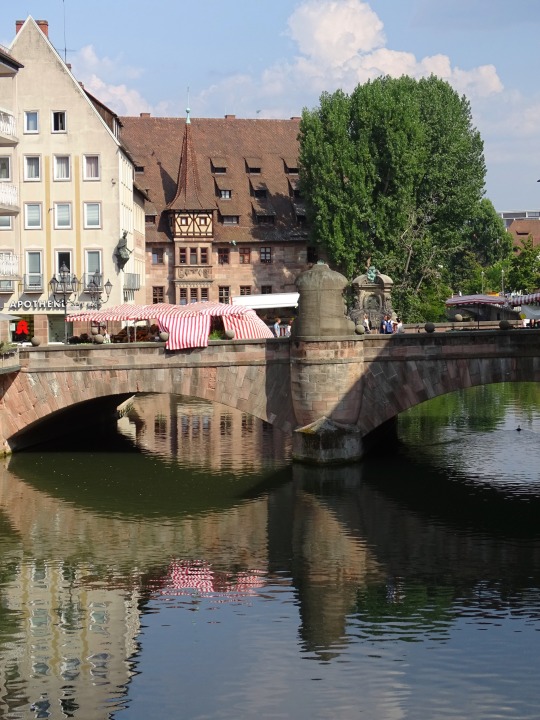

Tag der Deutschen Einheit
German Unity Day is celebrated on October 3 to commemorate the unification of the Federal Republic of Germany and the German Democratic Republic into a single federal Germany on the same date in 1990. A public holiday, the day is characterized by concerts, communal meals, speeches by politicians, and fireworks.
History of National Unity Day
After WWII, Germany was divided into four military sectors, each controlled by France, the United States, the United Kingdom, and the Soviet Union. In 1949, the Federal Republic of Germany was formed and, on October 7 of the same year, the German Democratic Republic (also known as the DDR — ‘Deutsche Demokratische Republik’) was formed.
The political tensions in post-war Europe did not allow much interaction between the people of the two countries. The DDR exercised strong resistance against repression of its political opponents. Thousands of people were kept under surveillance by the German police.
On September 4, 1989, a peaceful protest was carried out by the people of Leipzig against the DDR government. More such demonstrations in other DDR cities took place calling for political reforms and the opening of the borders. And on November 9 that year, the checkpoints between the two German countries were opened and people could travel freely once more. This date marked the ‘fall’ of the Berlin Wall.
Democratic elections further paved the way for the people to come together in the DDR. Finally, in August 1990, the leaders of both countries signed the Treaty of Unification, and Germany’s unification was made official on October 3, 1990.
The Berlin Wall and the Brandenburg Gate are two very important symbols of Germany’s division and the unification of Germany in 1990. Images of both of these are put on display on German Unity Day all across Germany. The day is celebrated as a three-day festival around the Brandenburg Gate and at the Reichstag around Platz der Republik.
National Unity Day timeline
May 23, 1949
Federal Republic of Germany Forms
The German sectors of France, the United Kingdom, and the United States come together to form the Federal Republic of Germany.
October 7, 1949
German Democratic Republic
The sector controlled by the Soviet Union becomes the German Democratic Republic (also known as the DDR — ‘Deutsche Demokratische Republik’).
November 9, 1989
Berlin Wall Falls
On November 4, an estimated 50,000 people gather for a mass protest in East Berlin — five days later, the Berlin Wall dividing communist East Germany from West Germany crumbles.
August 31, 1990
Unification Treaty is Signed
The Unification Treaty is signed, allowing a reunited Germany to become fully sovereign the following year.
National Unity Day FAQs
What is German Unity Day called in German?
German Unity Day is called ‘Tag der Deutschen Einheit’ (The Day of German Unity).
What does German Unity Day celebrate?
The Day of German Unity is Germany’s national holiday. It commemorates the German reunification in 1990 and is celebrated with a festival around Platz der Republik, Straße des 17.
What is closed on German Unity Day?
German Unity Day is a public holiday in Germany so post offices, banks, and many businesses are closed. Nearly all stores are closed, although a few may be open in some city areas.
How To Celebrate German Unity Day
Celebrate the local cultureCelebrate with all the locals at the Charlottenburg Palace. Experience the neighborhoods of Berlin while taking a stroll through Kreuzberg, Friedrichshain, and Mitte.
Watch films and documentaries about GermanyThere are many famous documentaries about Germany and the Berlin Wall. Some of them include “Busting the Berlin Wall,” “Stasi – East Germany’s Secret Police,” “After the Wall: A World United,” “Rise and Fall of the Berlin Wall,” and more.
Visit the specific city of observanceA famous feature of German Unity Day is the observance of the day in one of the 16 states’ capitals every year, which hosts the celebration.
5 Interesting Facts About The Berlin Wall
Two walls: The 27-mile barrier separating Berlin into east and west had two concrete walls that had a 160-yards-wide ‘death strip’ in-between with watchtowers, guard dogs, floodlights, machine guns, and more.
Death on the Wall: More than 100 people died while trying to cross the Berlin Wall, by gunshots, fatal accidents, or suicide.
The great escape: More than 5,000 people escaped by either going over or under the Berlin Wall.
Berlin in Vegas: A piece of the Berlin Wall is now in the bathroom of the Main Street Station Casino in Las Vegas.
In memory of Ida Siekmann: The Berlin Wall cycle route has a glass plaque honoring Ida Siekmann who was the first person to die while trying to cross the wall and flee to East Berlin.
Why German Unity Day Is Significant
It celebrates the unification of Germany: The establishment of Germany as a federal country after years of division since 1945 and the unification of East and West Germany is worth celebrating.
Fall of the Berlin Wall: It commemorates the day when the wall dividing communist East Germany and West Germany crumbled. This was just five days after almost 50,000 people gathered in a mass protest in East Berlin.
Dissolution of the German Democratic Republic: The date marks the dissolution of the German territory controlled by the Soviet Union and the day it joined the Federal Republic of Germany.
Source
#Tag der Deutschen Einheit#National Day of Germany#German Unity Day#3 October#Rostock#cityscape#architecture#Warnemünde#travel#summer 2020#Germany#Deutschland#German history#vacation#Leipzig#Mecklenburg-Vorpommern#Mecklenburg–Western Pomerania#Sachsen#Saxony#Bayern#Bavaria#Nuremberg#Nürnberg#Alter Strom#Marienkirche#Neuer Markt#Nikolaikirche#Völkerschlachtdenkmal#Baltic Sea#Schöner Brunnen
24 notes
·
View notes
Text
This day in history

Catch me in Miami! I'll be at Books and Books in Coral Gables TOMORROW (Jan 22) at 8PM. Berliners: Otherland has added a second date (Jan 28) for my book-talk after the first one sold out - book now!

#20yrsago RIP, Whole Earth Review https://web.archive.org/web/20040202031838/https://www.worldchanging.com/archives/000338.html
#15yrsago Media helped create the financial meltdown https://web.archive.org/web/20090125204013/http://tpmcafe.talkingpointsmemo.com/2009/01/23/the_medias_role_in_the_financial_crisis/
#10yrsago Ukraine government sends text to protesters: “Dear subscriber, you are registered as a participant in a mass disturbance” https://memex.craphound.com/2014/01/23/ukraine-government-sends-text-to-protesters-dear-subscriber-you-are-registered-as-a-participant-in-a-mass-disturbance/
#10yrsago What Makes Jo Walton So Great https://www.tor.com/2014/01/21/what-makes-jo-walton-so-great/
#5yrsago After Net Neutrality repeal, Comcast, Charter and Verizon cut investment in their networks https://arstechnica.com/information-technology/2019/01/sorry-ajit-comcast-lowered-cable-investment-despite-net-neutrality-repeal/
#5yrsago Data-broker implicated in bounty-hunters’ access to mobile location data lobbied FCC to fight consent for sharing location data https://www.vice.com/en/article/vbwgw8/zumigo-phone-location-data-sold-lobbied-fcc-consent
#5yrsago Limits to trickle-down: Trump’s tax-cut “boom” fizzles https://www.cnn.com/2019/01/23/business/investment-boom-tax-cuts-economy/index.html
#5yrsago Corporate America projects giant profits from climate disasters https://www.bloomberg.com/news/articles/2019-01-22/muggy-disney-parks-downed-at-t-towers-firms-tally-climate-risk
#5yrsago After six days, LA teachers settle their strike, wringing huge concessions out of the school district https://jacobin.com/2019/01/la-teachers-strike-contract-arlene-inouye/
#5yrsago Winners Take All: the Davos Edition (how elites launder looting with phoney philanthropy) https://www.theguardian.com/news/2019/jan/22/the-new-elites-phoney-crusade-to-save-the-world-without-changing-anything
#5yrsago How a political outsider’s fundraising tool is helping insurgent, working-class Dems mount primary challenges and campaigns https://theintercept.com/2019/01/23/grassroots-analytics-campaign-donations/
#1yrago Eggflation is just more price-gouging https://pluralistic.net/2023/01/23/cant-make-an-omelet/#keep-calm-and-crack-on

I'm Kickstarting the audiobook for The Bezzle, the sequel to Red Team Blues, narrated by @wilwheaton! You can pre-order the audiobook and ebook, DRM free, as well as the hardcover, signed or unsigned. There's also bundles with Red Team Blues in ebook, audio or paperback.
10 notes
·
View notes
Text
Israel's Minister of Finance calls for a resettlement of Gaza with Israelis, says Israel will not allow for 'two million people to live there' and calls for all but at most 100.000-200.000 Palestinians to flee Gaza. Meanwhile the German Government and its experts still insist that calling this a genocide is wrong and inappropriate.
" A right wing extremist israeli minister advocates for an israeli re-settlement of the Gaza strip after the war. Minister of Finance Bezalel Smotrich told the israeli military channel on sunday, if Israel proceeds correctly there will be an emigration of Palestinians and "we will live in the Gaza strip."
According to a post by the channel on the platform X Smotrich said furthermore: "We will not allow for a situation where two million people live there. If 100.000 or 200.000 Arabs live in Gaza, the discussion about the 'day after' will be a very different one." He added "They want to leave, they've been living in a ghetto and in suffering for 75 years."
Out of worry of a mass flight Egypt as well as Jordan have refused the intake of refugees from the contested Gaza strip. This is also due to the worry that it would result in a permanent displacement. Smotrich is an advocate of the vision of "Great-Israel" and also advocated for the annexation of the occupied West Bank."
And yet the German Government and the experts it and the media keep quoting still unequivocally claim that this is not a genocide and that saying it is is a baseless claim and 'very very inappropriate' :
[from an article about a pro-palestine protest at a university in Berlin. Earlier in the article the expert also claimed that the protesters holding up their palms, that have been painted red to symbolise Germany's complicity in the genocide, is 'highly antisemitic' and claimed it symbolises the protesters calling for the death of jewish people.]
"What happens here is a shifting of the limits of the sayable. We've been witnessing the misuse of the apartheid term for a long time already, especially by the BDS-Movement [...] Here they always bring up images of the apartheid regime in South Africa and connect them with Israel to condemn israeli politics - even though that's very obviously not comparable.
The use of the genocide term is even way, way less appropriate. What is a genocide has been very distinctly defined by the international law: the intentional and thus legitimised, announced killing of a national, ethnic or religious group because of those traits. The motive of destruction and annihilation is very important in this case."
So according to this expert, and others like him, this is not a genocide because high ranking Israeli government officials calling for the emigration or death of all but 100.000 Gazans and the subsequent resettlement of the land with Israelis, while destroying 70% of all infrastructure in Gaza and killing more than 20.000 people in just about two months, is somehow not 'intentional and legitimised killing of a national, ethnic or religious group because of those traits'.
Somehow, high ranking israeli government officials saying they want all but 5-10% of Palestinians in Gaza to 'go away' so the land can be settled by their own citizens does not show a genocidal motive, according to these people, but instead their motive is considered 'self defense' and is treated as righteous and in need of (military) support.
The israeli government again saying they simply 'must' annex further parts of Gaza for the sake of a so called 'demilitarisation' , does not show any such occupational motives either, according to those experts.
"The Philadelphi corridor or, better, the southern end of the Gaza strip must be in our control." , said Netanyahu in a televised address. The region must be cordoned off. "It is clear, that every other regulation would not ensure the demilitarisation, that we are aiming at."
Not to mention that when someone like Smotrich calls the living situation of Palestinians in Gaza "living in a ghetto and in suffering for 75 years" to support his argument that all Palestinians should just leave and, according to him 'want' to leave (implying that Israel is really doing them a favor by speeding up this emigration), it is acceptable and reasonable, but when someone like jewish journalist Masha Gessen makes the same comparison to call on international governments to stop Israel's attacks and oppression it is considered "An unspeakable comparison that oversteps a red line" which caused the cancellation of an award ceremony in which Gessen was supposed to receive the Hannah Arendt Prize for political thinking.
#palestine#free palestine#gaza#current events#german stuff#if someone has the link to Gessen's article feel free to add (I couldnt find it again for some reason) .thank you
7 notes
·
View notes
Note
Are you aware that there have been molotov attacks against synagogues in Berlin after the Hamas attacks? And Jewish parents have been afraid to send their children to school fearing for their safety? Maybe think for a moment why the German police is extra cautious about pro Hamas rallies?
???? i am talking about pro-palestine protests not pro-hamas rallies. i’m speaking of protests in which countless jewish, even israeli jewish, people went to support. protecting jewish ppl from antisemitic attacks makes total sense, banning protests for palestinian liberation and against the genocide of palestinians, banning even basic sentiments supporting palestinians while saying absolutely nothing against jewish ppl doesn’t! stop being intellectually dishonest! there has been an increase in attacks against palestinians too and thousands of palestinians have been killed in the past week, yet pro-israel rallies (ones where people have openly called for genocide) aren’t being barred by any governments in the west. what happened to freedom of speech? does it not extend to speaking against middle eastern people being mass-murdered now?
#dishonest as fuck#a student has been hit by a teacher for having a palestinian flag#palestinians have been physically assaulted by police officers#even jewish ppl supporting palestinians were pepper sprayed for no reason!!!#and u want me to pretend that’s ok?#anonymous
12 notes
·
View notes
Text
Common Dreams Staff
Feb. 3, 2024
“All together against racism,” the crowd in Berlin shouts. Some held posters that said “Heart instead of hate” or “Racism is not an alternative.”
Up to 300,000 people took to the rainy streets of Berlin, Germany on Saturday as nationwide protests against the far-right Alternative for Germany (AfD) party. Protests were also taking place in dozens of other cities such as Freiburg, Dresden, Hannover, and Mainz, a sign of growing alarm at growing support for the AfD.
Under the slogan “We are the Firewall” — a reference to the longstanding taboo against collaborating with the far right in German politics — protesters turned the space next to the Bundestag, or national parliament, into a sea of signs, flags, and umbrellas.
“All together against racism,” the crowd in Berlin shouted. Some held posters that said “Heart instead of hate” or “Racism is not an alternative.”
The new wave of mobilization against Alternative for Germany (AfD) was ignited by a January report by investigative outlet Correctiv. It revealed that AfD members had discussed the expulsion of immigrants and “non-assimilated citizens” at a meeting with extremists.
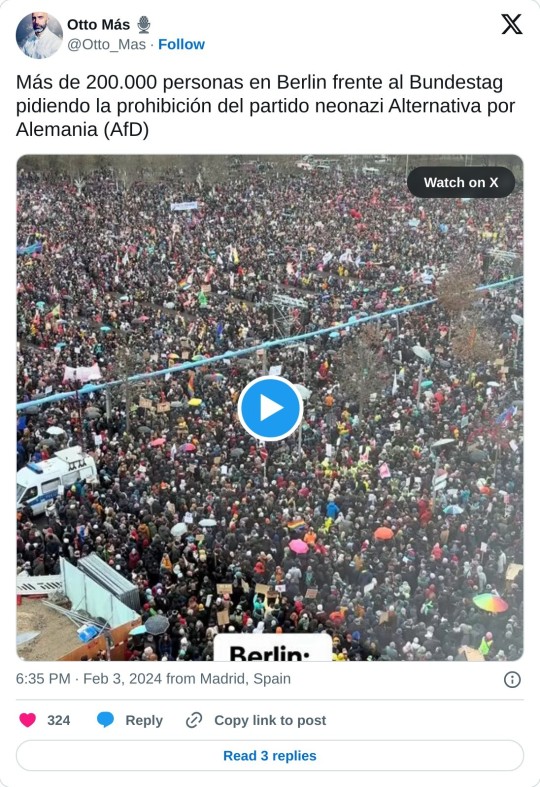
The report sent shockwaves across Germany at a time when the AfD was soaring in opinion polls, months ahead of three major regional elections in eastern Germany where their support was strongest.
“We absolutely must not allow the stories that we experienced in 1930 or even back in the 1920s to happen again ... We must do everything we can to prevent that,” said Jonas Schmidt, who came from the western port city of Bremen told the Associated Press. “That’s why I’m here.”
Kathrin Zauter, another protester, called the strong attendance “really encouraging.”
“This encourages everyone and shows that we are more — we are many,” she said.
Jakob Springfeld, the spokesman for the NGO Solidarity Network Saxony, said he was shocked that it had taken such a long time for mass demonstrations against the far-right, given the AfD had been successful in many smaller communities already. "But there's a jolt now. And the fact that the jolt is coming provides hope, I believe."
German Chancellor Olaf Scholz praised the protests, writing in a Saturday post on the social media platform X that citizens’ presence at the gatherings is “a strong sign for democracy and our constitution.”
“In small and big cities across the country, citizens are coming together to demonstrate against forgetting, against hate and incitement,” he added.
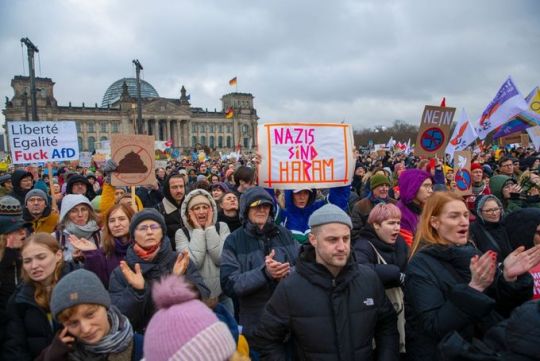
Saturday's protest was a collaboration involving more than one thousand entities, including leave none behind, Amnesty International, Echo Iran, and FridaysForFuture, initiated the call for action against right-wing extremism at the Reichstag building. (Photo by HAMI ROSHAN/Middle East Images/AFP via Getty Images)
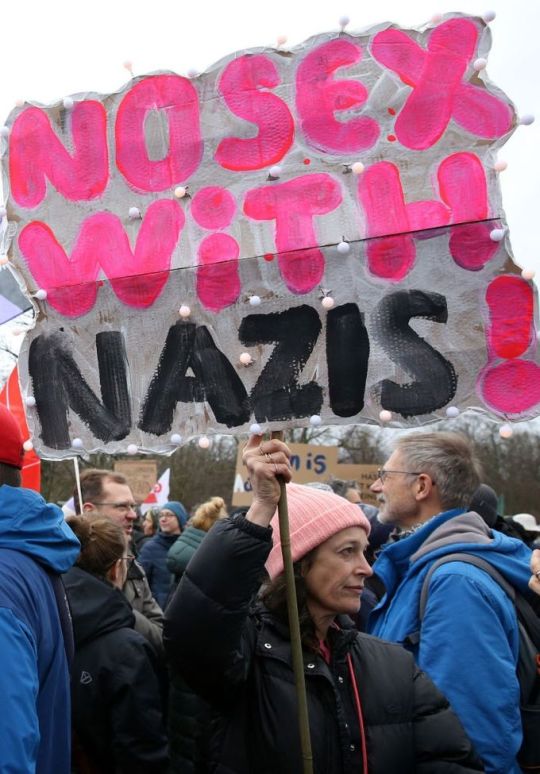
A participant holds up a placard reading 'No sex with Nazis' during a rally under the motto 'We are the firewall' called for by international non-profit organisation 'Hand in Hand' against right-wing politics in front of the Reichstag building in Berlin, Germany on February 3, 2024. (Photo by ADAM BERRY/AFP via Getty Images)

"We are the firewall" for democracy and against right-wing extremism. With the demonstration, the participants want to set an example of resistance against right-wing extremist activities. (Photo by Kay Nietfeld/picture alliance via Getty Images)
3 notes
·
View notes
Text
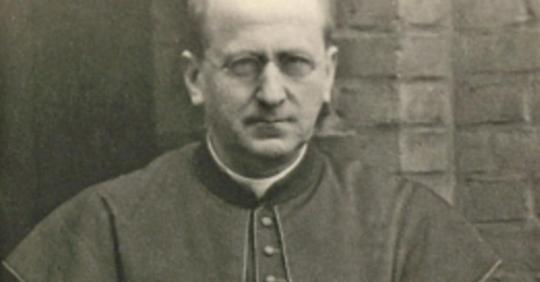
Brave German Priest
Beatified by John Paul II
Father Bernhard Lichtenberg was a German Catholic priest who defied the Nazi regime and paid a heavy price.
Born in Prussia in 1875, Father Bernhard grew up among the Catholic minority of a largely Protestant city. He was ordained as a priest in 1899 and served as a military chaplain during World War I. He served in several parishes in Germany. As the Nazis rose to power in the 1930’s, he was assigned to St. Hedwig’s Cathedral in Berlin.
During the Kristallnacht pogrom of November 1938, German churches kept quiet, and most Christian clergy stood idly by. Father Bernhard was the only Catholic priest in Berlin who spoke out publicly against the atrocity. His voice grew louder in 1939, when the Third Reich began implementing a merciless child euthanasia program, in which disabled children were secretly killed by the thousands. Horrified, Father Bernhard went to Nazi headquarters and vehemently protested the euthanasia program. Nazi officials laughed at him. He wrote a letter to the Chief Physician of the Reich, saying “I, as a human being, a Christian, a priest, and a German, demand of you, Chief Physician of the Reich, that you answer for the crimes that have been perpetrated at your bidding, and with your consent, and which will call forth the vengeance of the Lord on the heads of the German people.” Over 200,000 people were killed in the euthanasia program.
Father Bernhard often preached from the pulpit against the Nazi regime. He prayed publicly every day for Jews and other victims, and ended every mass with a prayer for the Jews of Germany. Two female students heard him pray publicly for Jews that had been sent to concentration camps, and denounced him to the police. In 1941, Father Bernhard was arrested by the Gestapo. He refused to disavow his moral objections to the Reich. Father Bernhard was imprisoned for two years, enduring terrible conditions and physical abuse. In 1943, he was transferred to Dachau. He died in a cattle car on his way to the camp. He was 68 years old.
In 1996, Father Bernhard was beatified by Pope John Paul II and declared a Blessed Martyr. The beatification ceremony was held in the Olympic Stadium in Berlin. He was honored as Righteous Among The Nations by Yad Vashem, the official Holocaust Memorial of Israel, in 2004.
For his profound moral courage at the cost of his life, we honor Blessed Father Bernhard Lichtenberg as this week’s Thursday Hero.
Accidental Talmudist
28 notes
·
View notes
Text
A lesbian activist, an anti-war protester and a memoirist Eva Kollisch was a woman rose above tragedy.
By Luke Peteley | [email protected]
STATEN ISLAND, N.Y. -- Eva Kollisch, 98, a Jewish refugee who was educated as a teen on Staten Island and later became a noted memoirist and a lesbian rights advocate, died Oct. 10 of a chest infection at her home in Manhattan, according to media reports.
Born in 1926 to a Jewish family outside Vienna, Austria, Kollisch faced persecution from the rising Nazi regime. As war loomed in 1939, Kollisch fled the Holocaust aboard a Kindertransport train, as part of the mass rescue of nearly 10,000 children to Britain prior to the outbreak of the second world war, as detailed by Kveller.
In 1940, she and her brothers arrived in the U.S. and were reunited with their parents in New York; the family would settle in an apartment on Staten Island, according to The New York Times.
A graduate of Curtis High School, Kollisch recounted in a 2016 interview how her early political views were shaped during her time as a student at the school.
youtube
“I went to high school on Staten Island and had a couple of years, sort of uninteresting years, in high school,” she said. “But it was safe. Nobody beat me up, nobody called me a Jew b***d or anything like that. And then toward the end of my second year I met a bunch of Trotskyists and it made a big impression on me.”
She continued that she “found a kind of home, an intellectual home. And a home for my own sense of injustice and wanting to make things right, making them OK. They were far from OK.”
After high school, she left Staten Island and worked on an assembly line in Detroit, and as a labor organizer. Despite joining the Trotskyist movement as a teen, Kollisch said she became disillusioned by the overwhelming male leadership.
It wasn’t until 1986 that she met future wife Naomi Replansky, a poet and labor activist. As noted by The New York Times, she first had two marriages to men, Stanley Plastrik in 1942, and Gert Berliner, an abstract expressionist artist and fellow refugee.
While with Berliner, the couple moved to New Mexico, where Kollisch wrote while working as a cook at a uranium mine, and as a social worker. It was there that she gave birth to a son, Uri; he and a grandson are the only immediate survivors. The couple then returned to New York and separated in 1959.
“I didn’t go through this period of great suffering that so many women did in the ‘40s and ‘50s, and by the 1960s, you know, it was a part of my androgyny, really, to have loved some men and to love women,” Kollisch said in a 2004 interview.
Kollisch and Replansky married in 2009.
In 2016, after decades as a couple, Kollisch and Replansky won the Clara Lemlich Social Activist Award; in 2020, the New York Times profiled how the couple were surviving the COVID-19 pandemic together. Replansky died at age 104 in January.
For work, Kollisch was a professor of comparative literature at Sarah Lawrence College, according to Kveller.
In addition to a career as a professor, Kollisch also became a poet and a vocal activist. The Museum of Jewish Heritage notes that “her American arrest came for anti-Vietnam protests; she stood vigil as a Woman in Black, and took part in the Seneca Women’s Encampment.”
Kollisch went on to write two memoirs, “Girl in Movement” (2000) and “The Ground Under My Feet” (2007).
#Eva Kollisch may her memory be a blessing#Lesbian rights activists#Clara Lemlich Social Activist Award#Arrested for protesting the Viernam War#Books by women#Girl in Movement (200)#The Ground Under My Feet (2007)#The poet Naomi Replansky#Youtube
3 notes
·
View notes
Text

Keep Rights at Center of Turkey/Germany Meeting
On November 17, Turkey’s President Recep Tayyip Erdogan will visit Berlin for talks with Germany’s Chancellor Olaf Scholz and President Frank-Walter Steinmeier.
The hostilities between Israeli forces and Palestinian armed groups are likely to be high on the agenda. While Germany and Turkey take different views of the situation in Israel and Palestine, Scholz and Erdogan should focus on measures to urgently protect civilians at risk of mass atrocities. Both leaders should condemn war crimes, irrespective of the perpetrator. They should also respect the right to protest on this issue and commit to combat antisemitism and Islamophobia.
Scholz, who has claimed Israel is abiding by international law, should condemn Israeli authorities’ cutting of food, water, fuel, and electricity to the civilian population of Gaza and call on authorities to refrain from unlawful indiscriminate and disproportionate attacks.
Erdogan should condemn Hamas’ October 7 attacks on civilians and subsequent indiscriminate rocket attacks and press Hamas and other Palestinian groups to immediately release civilians held hostage.
Human Rights Watch has called on allies of Israel, including Germany and backers of Palestinian armed groups, to suspend the transfer of arms to the warring parties in Israel and Gaza given the real risk that they will be used to commit grave abuses.
2 notes
·
View notes